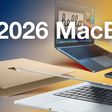Dialog Semiconductor admitted on Monday that Apple, its top customer, could build its own power management chips for future iPhones without relying on the British-based chipmaker (via Reuters). The comments saw Dialog shares tumble as much as 19 percent, despite the firm claiming there was no risk to its existing supply deals in 2018.
Dialog said it was already in the advanced stages of working with Apple on designing "2019-type products" that could lead to commercial contracts by next March.
![]()
"Our position remains that we have seen no material change to our ongoing relationship with Apple Inc," Chief Executive Jalal Bagherli told investors on a conference call.
However, the company acknowledged for the first time that "Apple has the resources and capability to internally design a PMIC and could potentially do so in the next few years".
A report last week claiming Apple would design its own power management chips as early as 2018 came as a serious blow for Dialog, which exclusively designs the current main power management chip for iPhone, iPad, and Apple Watch models. Apple reportedly accounted for nearly three quarters of Dialog Semiconductor's revenue in 2016.
Dialog's PMIC chip controls an iPhone's battery, including charging capabilities and energy consumption. Apple's own design will supposedly be "the most advanced in the industry", according to Nikkei Asian Review, and could enable future iPhones to have a better balance between performance and battery consumption. Taiwanese supplier TSMC will be the exclusive manufacturer of Apple's in-house power management chip, according to the report.
Since last week's report, Dialog shares have lost nearly a third of their value. At one point this morning they were down 15.2 percent at 26.47 euros ($31.38), according to Reuters.
Bagherli said Apple's feedback so far on 2019 product plans had been "very good" and that he expected to have more clarity by March on the terms of new business from Apple for 2019. Dialog would update investors when it had more details, he said.
Semiconductor suppliers are typically barred by Apple from revealing their supply relationships. Dialog, which has previously declined to name Apple, referring to it only obliquely as its "largest customer" or its "main business", said it had received a special dispensation from Apple to mention it.
Dialog emphasized that it had no reason to believe its 2018 business with Apple would be affected if Apple chose to design its own chips, but acknowledged that it would need to meet the company's "technology, quality, price, and volume expectations" if it wanted to remain a key supplier.
Dialog Semiconductor may turn out to be the second large British company to lose major business from Apple with the next couple of years. In April, Imagination Technologies shares plunged after Apple informed the firm it plans to stop using its PowerVR graphics technology in its devices by mid-2019.
Apple looks on course to start designing several other components in-house in the next few years, potentially including ARM-based Mac processors and iPhone modems.



















Top Rated Comments
The future of smartphone batteries is charging speed and convenience. If the performance of the 8/X line in that regard is an indication, I can see why Apple might consider bringing this tech in-house.
Never a good idea to get in bed with Apple, unless you only care about short term gain. Apple does not care about their effect on other companies and their employees. It's not in their DNA.
--
Reminds me. Remember how Apple bought AuthenTec, the fingerprint sensor company that everyone in the industry had been sharing for years? Just to keep the faster sensor exclusive?
Wonder what happens to all those people now that Apple is going to concentrate on FaceId instead.
And Apple? Ummhmm.. So, it seems.